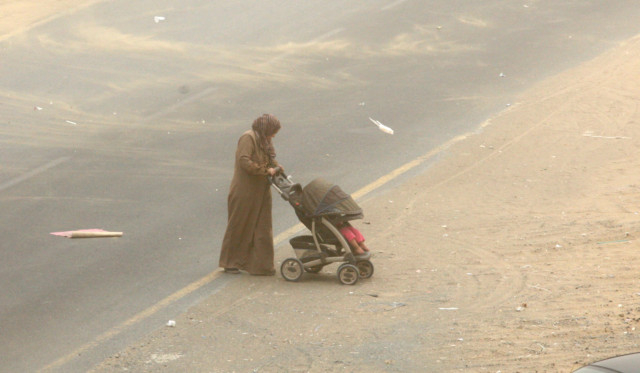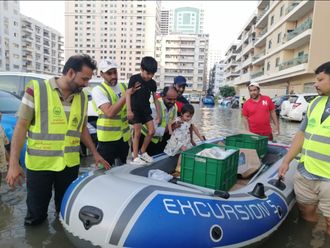
Dubai: Weathermen have alerted residents about a brewing sandstorm this weekend, even as health officials report a rise in hospital admissions due to associated respiratory diseases.
Sufian Farah, Weather Fore-casting Specialist from the Abu Dhabi-based National Centre of Meteorology and Seismology (NCMS), said: “We are forecasting a sandstorm this weekend. North westerly winds from Iraq and Kuwait starting on Friday will affect the UAE as they travel towards the Western Region and the rest of the country on Saturday.”
Farah was speaking at a press conference in Dubai organised by healthcare major MSD to raise awareness about health risks of sandstorms and how to prevent them. Typically, sandstorms in the UAE occur between May and July, although recent years have seen freak storms kicking in even earlier. The majority of sandstorms occur in Abu Dhabi and Al Ain.
Mazen Altaruti, Managing Director of MSD Gulf, said: “The UAE sees eight to 10 sandstorms every year. They last for several hours or sometimes the whole day, bring traffic to a standstill, force offices and schools to close and increase the number hospitalisations.” He said officials have reported a 25 per cent increase in hospital admissions due to respiratory diseases brought on by bad weather, particularly sandstorms.
Dr Hussain Abdel Rahman, Head of the ENT Department at Dubai Hospital, said: “Sandstorms are a major cause of bacterial and viral infections among residents. Allergic rhinitis is also a major problem and if left untreated, can lead to asthma even in patients with no history of the illness.”
He said typical symptoms of allergic rhinitis include itchy eyes, runny nose, sneezing, nasal congestion and headache. When the symptoms persist, they can lead to sinusitis, nose bleeding, middle ear infections and asthma. He warned that children are at a greater risk of developing allergic rhinitis during sandstorms. “One in five children in the UAE already suffers from asthma and an additional 40 per cent suffer from asthmatic episodes brought on by allergic rhinitis.”
The experts said while allergic rhinitis cannot be cured, it can be prevented by staying indoors during a sandstorm. If that is not possible, they suggested that residents cover their faces, eyes and nose and avoid inhaling sand and dust. They said drinking lots of water also helped.
Managing allergic rhinitis medically entails taking antihistamines, nasal steroids, decongestants and Ipratropium Bromide as advised by physicians, said Altaruti.
Ashraf Amin Ibrahim, Air Pollution Specialist at NCMS, said the centre is working on a special air quality monitoring project to collect data on critical pollutants in the air. “The NCMS has 46 monitoring stations across the emirates, including 20 in Abu Dhabi and 12 in Dubai. This network will give us a clear picture of the air quality in the UAE once we complete the project in a few days,” he said.












